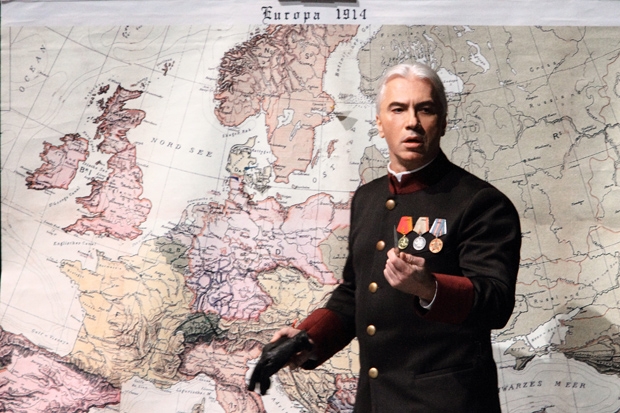Whether by chance or bold design, the Royal Opera’s two Christmas shows were written at precisely the same moment, between 1857 and 1859, and both mark a high point of refinement in their respective traditions. Both Wagner’s Tristan und Isolde and Verdi’s Ballo in maschera sometimes give the impression of being entranced by their abstract musical fantasy; the drama on stage is suspended, drawn out, barely engaged with as the characters and audience peer down into the writhing or transfixed world being created in the orchestra pit. In my view, neither composer ever did anything better in musical terms. But sometimes you feel that there is no hope for Ballo.
The catastrophic history of Ballo at the hands of the censors, who insisted on renamings and rewritings so that no monarch would be assassinated on the operatic stage, is well known. Did that account for the amateur quality of the drama? Oscar, thrilling favourite of the untiring soprano, a Heldensoubrette role above all others, serves absolutely no dramatic function at all — he doesn’t even inadvertently identify the king to the assassins in the last act. What’s the point of the fortune-teller Ulrica? The king goes to see her for no very good reason, and she tells him the plot of the rest of the opera; the king’s love interest goes to see her, and she is told to gather herbs at midnight in a graveyard to cure her illicit passion. She doesn’t do any of that, and the whole business seems to be contrived to enable the two to meet at midnight over a tomb. Some further absurd business needs to be entered into to explain why the husband, too, finds himself in the same place at the same time of night. Why couldn’t the lovers meet at four in the afternoon over a cup of tea? God knows.

The inadequacies of the libretto, however, don’t excuse the limp production at Covent Garden.








Comments
Join the debate for just £1 a month
Be part of the conversation with other Spectator readers by getting your first three months for £3.
UNLOCK ACCESS Just £1 a monthAlready a subscriber? Log in